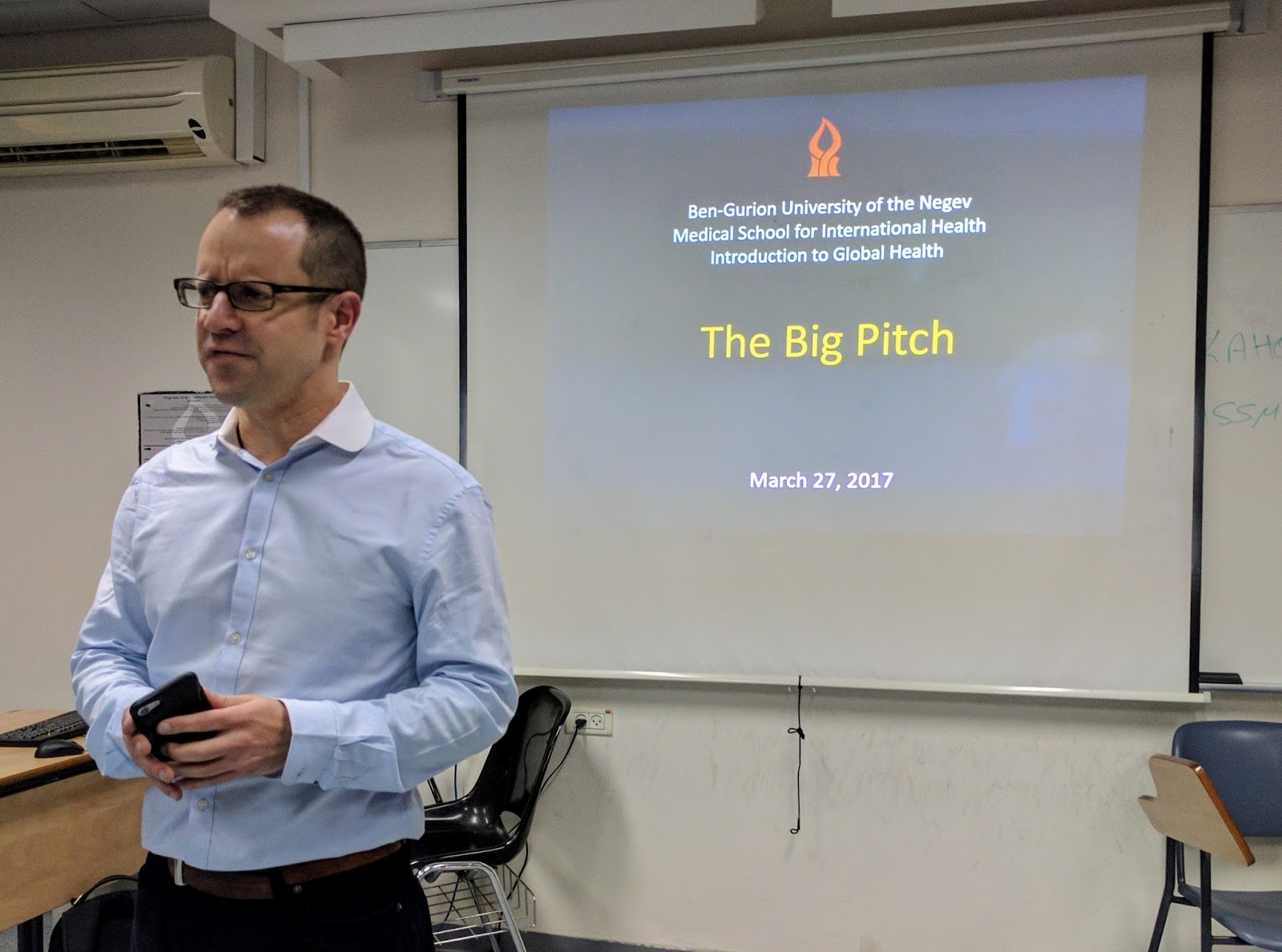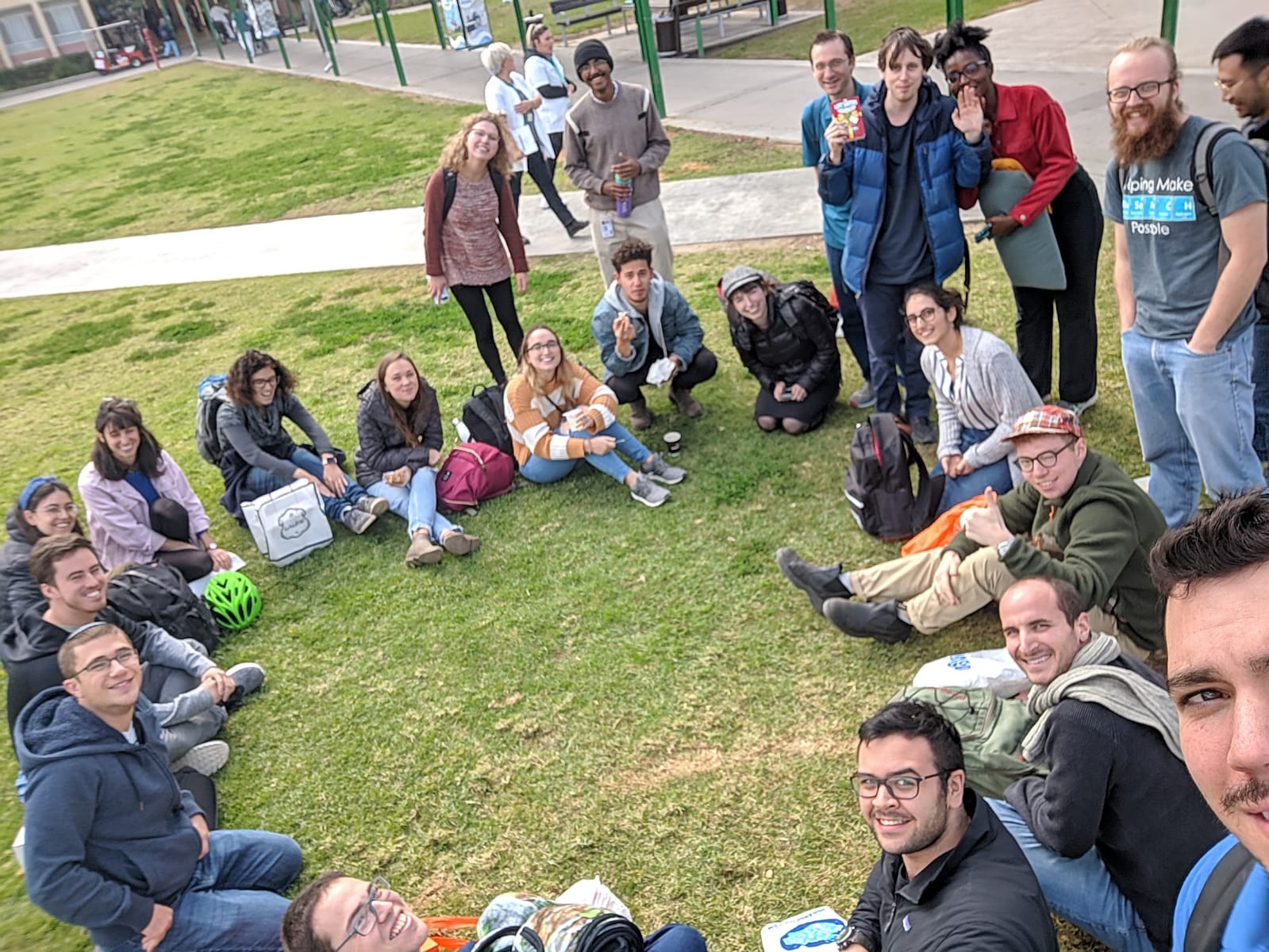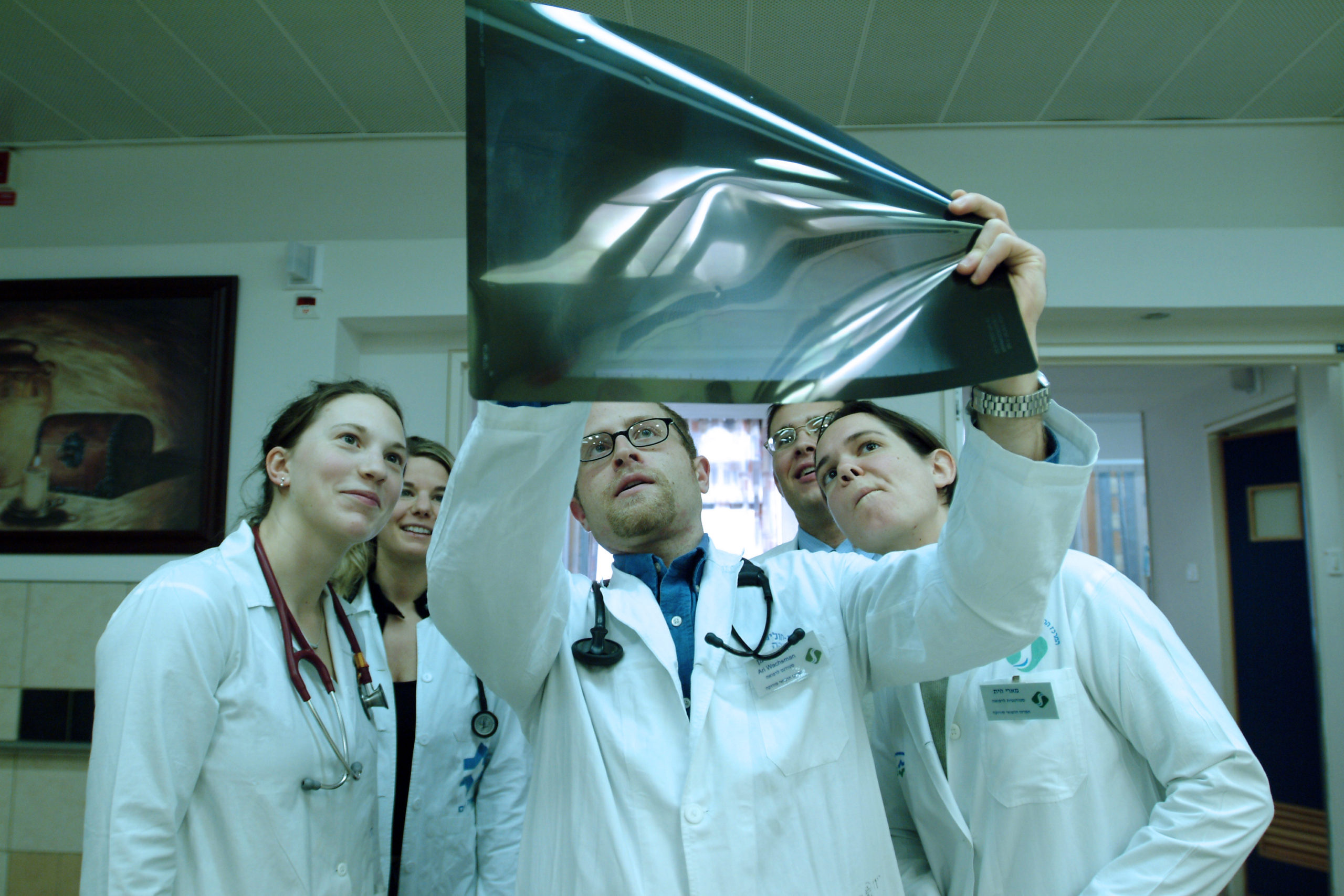That was the question posed in the final exercise of this year’s Introduction to Global Health course at the Medical School for International Health.
During the 36-hour course, students were introduced to the major aspects of Global Health ranging from disease burden to child survival, and from tobacco control to the spread of Zika. An important element of the course is the historical context: how did we get to where we are now and what are the public health consequences?
“Global health is a huge topic,” explains course co-coordinator Dr. Anat Rosental. “Naturally, we can’t cover it all, but we squeeze as much in as we can. It’s important to involve the students in the practical aspects — and that’s why we ask them to pitch their ideas for an intervention in the last meeting of the class.”
The students were randomly split into groups and assigned a country. The teachers insisted on randomness to distance students from their friends and comfort zone. Each group had to study the assigned country, identify a problem and make their intervention pitch.
“They did exceptionally well,” said Dr. Mark Katz, the second co-coordinator and presenter of the pitch. “We saw from the way they interacted that there was a real team spirit. They’re only first-year students with little medical knowledge, but they put their hearts and souls into their presentations and they were amazing.”
The pitches were:
- Alleviating Mental Health Problems among the Tamil Community in Sri Lanka
- Addressing Obstetric Fistula in Nepal
- Combatting Violence in Peru
- Targeting Childhood Diarrheal Diseases in Ethiopia
- Fighting Obesity Among the Young in Mexico
- Reducing Superfluous Antibiotics Use in India
- Preventing Diabetes in the Philippines
“The Big Pitch” was the final lesson of the course, which examines clinical medicine in local and global contexts. Each three-hour session uses the “flipped classroom” approach, where exercises are prepared by students in advance, then discussed together with peers and teachers. The idea is based on a similar project at the Emory University School of Public Health.
The $25 million prize went to the team that created an app for reducing diabetes in the Philippines. Named “TwitFit,” the app is designed to encourage young people to exercise, eat sensibly, and educate themselves and their peers. The team chose an app because “it’s the way to talk to young people today.”





